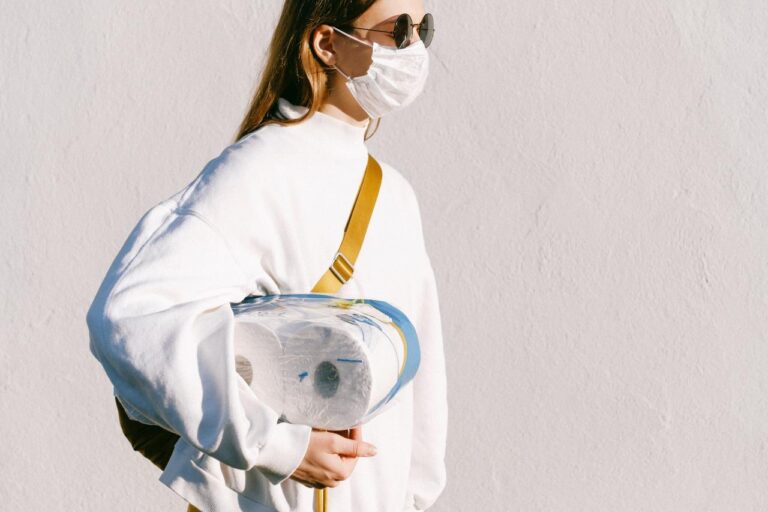Lamenting what he described as the state of denialism in the U.S., Dr. Eric Topol says: “This passivity reinforces the illusion that the pandemic is behind us when it’s actually raging.”
“The pandemic is far from over,” one of the pre-eminent experts on COVID-19, Dr. Eric Topol, declared on Thursday, roughly four years after the world first learned of a novel virus that was killing people in China.
In an op-ed published in the Los Angeles Times, Topol’s focus was the major COVID resurgence now underway in the United States. But he could have been writing about Quebec, given what’s now going on in the province.
This advertisement has not loaded yet, but your article continues below.
Breadcrumb Trail Links
Analysis: ‘Pandemic is far from over,’ expert says as new variant spurs major COVID resurgence
Lamenting what he described as the state of denialism in the U.S., Dr. Eric Topol says: “This passivity reinforces the illusion that the pandemic is behind us when it’s actually raging.”
“The pandemic is far from over,” one of the pre-eminent experts on COVID-19, Dr. Eric Topol, declared on Thursday, roughly four years after the world first learned of a novel virus that was killing people in China.
0 of 1 minute, 25 secondsVolume 0%
In an op-ed published in the Los Angeles Times, Topol’s focus was the major COVID resurgence now underway in the United States. But he could have been writing about Quebec, given what’s now going on in the province.
“The pandemic is far from over, as evidenced by the rapid rise to global dominance of the JN.1 variant of SARS-CoV-2,” Topol noted. In Quebec, from Dec. 3 to 16, nearly one in two genetic samples screened for JN.1, up from only eight per cent a month earlier. The prevalence is likely higher now.
“Clearly, this virus variant, with its plethora of new mutations, has continued its evolution with mutations adapted for infecting or reinfecting us,” Topol added, alluding to JN.1.
Although the updated vaccine booster that has been available in Quebec since October has been shown to be 60 per cent protective against hospitalization, only 17 per cent of the Quebec population has taken it — two per cent lower than the rate in the U.S. And among Quebecers ages 18 to 59, the rate drops to 7.2 per cent, according to the latest data collected by the Institut national de santé publique du Québec.
Meanwhile, hospitalizations with and for COVID-19 have just crept up in the last few days to the 2,400 range, putting enormous pressure on a fragile health-care system. By comparison, pandemic hospitalizations were in the high 2,800 range in the province last January.
COVID is also still killing Quebecers, those mostly in their 80s, as it has since the beginning. A total of 289 deaths last December were linked to COVID, compared with 450 in December 2022. But last December’s death toll was higher than the one in December 2021.
Of course, this resurgence is not occurring in a vacuum. It’s coinciding with a flu season that has yet to peak in Quebec, with the influenza A (H1N1) strain responsible for most cases. It’s no wonder then that emergency rooms across the province are again swamped with patients, some of whom are languishing on stretchers for days.
At Friday afternoon, the ER of Montreal’s Royal Victoria Hospital was filled to 239 per cent capacity, the Jewish General’s at 200 per cent capacity, and the Verdun Hospital at 204 per cent. ER specialists acknowledge that at 200 per cent capacity, patient safety becomes an issue.
Health Minister Christian Dubé has appeared to assign part of the blame for the latest ER crisis to “a large percentage of people who consult at the emergency department who don’t have an urgent problem.”
That comment drew a sharp rebuke from the Canadian Association of Emergency Physicians (CAEP) on Wednesday. A spokesperson for the CAEP said he was “concerned” by Dubé’s comments, adding that if patients feel they need emergency health care, they shouldn’t hesitate to go to the ER.
“The issues around emergency medicine volumes are really more to do with flow through the hospital than it is to do with individual patients presenting,” Dr. Michael Herman told The Canadian Press.
Despite the COVID resurgence, Topol lamented what he described as the “state of denialism” in the U.S.
“With all three respiratory viruses (SARS-Cov-2, influenza and RSV) circulating at full force you would think we’d be seeing people wearing masks everywhere in public,” he observed. “That couldn’t be further from the truth. The state of denialism and general refusal to take simple steps to reduce the risk of infection can be seen everywhere.”
“This passivity reinforces the illusion that the pandemic is behind us when it’s actually raging,” Topol concluded. Again, he could have been referring to Quebec and the other provinces.
At a news conference on Dec. 19, Dubé and Quebec’s chief public health officer, Luc Boileau, urged people to get their boosters. But they didn’t emphasize the importance of mask wearing in public gatherings.
Source: montrealgazette
